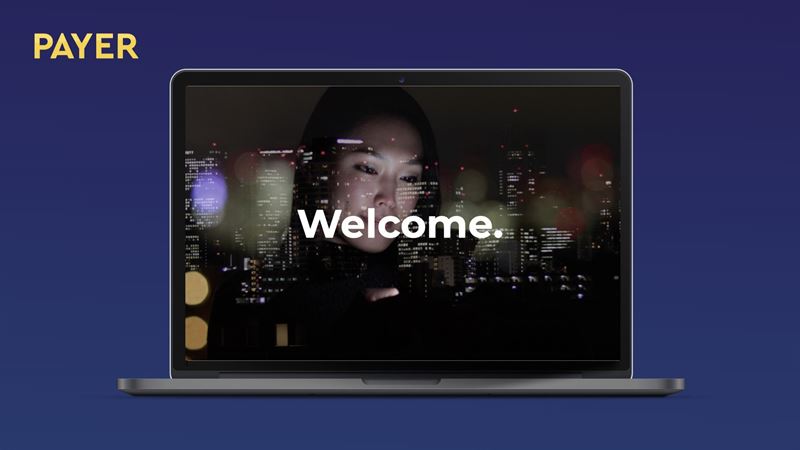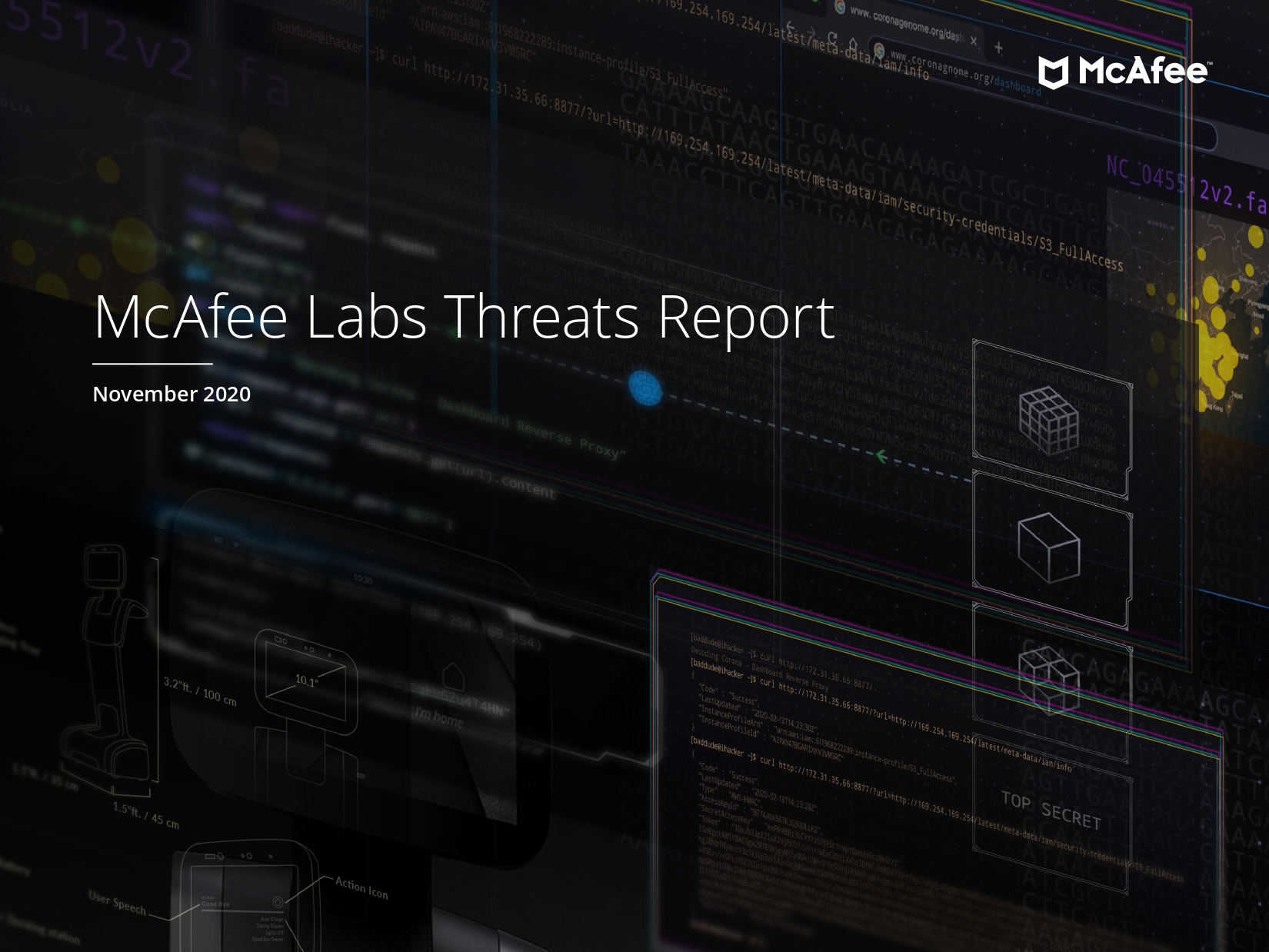Published
- 04:00 am

iwoca, one of Europe’s largest small business lenders, announces that its invoice payments product – iwocaPay – will be free throughout the UK’s second national lockdown to support small businesses impacted by coronavirus.1
iwocaPay is a new product from iwoca that allows small businesses to be paid upfront while letting their customers spread their costs over 90 days. The news comes as the number of times small businesses offered iwocaPay to their customers grew 700% during the initial lockdown (sharing a paylink), as well as an 85% spike in the number of small businesses using the product.
iwoca launched iwocaPay in June 2020 to make it easier for small businesses to get paid and to help both SMEs and their customers to manage cash flow. As the country enters a second lockdown, iwoca has decided to make its product free to help SMEs stay in business and keep cash positive. Usual fees for sellers and interest charged over the 90 day duration of the product for buyers will be dropped. Sellers will get 100% of their cash upfront for their invoices whether they are new or outstanding.
iwoca committed to help businesses get paid on time
The fintech lender carried out research in June which revealed that 40% of B2B suppliers were owed more than £10,000 in outstanding invoices in the first lockdown with a third of small businesses lacking any confidence that they would ever get paid.2 Within the same period, a quarter of all UK businesses (of which SMEs represent the majority) ceased trading, and over half of those that continued to trade saw a fall in turnover.3
Lara Gilman, Co-lead of iwocaPay, said: “We want to open up our product to help as many people as possible get paid during this time. We now know that lockdown has amplified the challenges SMEs have been battling such as low productivity and late payments, so removing all of iwocaPay’s fees will help ensure the same thing does not happen again.
“Coronavirus can and should trigger a step-change for small businesses to become more efficient, productive and resilient. We want to help by doing our bit and being there for small businesses when they need us the most.”
iwocaPay is available to all limited companies and sole traders in the UK for invoices between £150 and £15,000. Suppliers get paid up front and their business customers can spread the cost over up to 90 days.
Related News
- 04:00 am

Payer Financial Services (Payer) has developed a new registration product that revolutionizes how customer relationships are made between companies online. The product enables e-commerce merchants to verify new customers as trustworthy so they can make their purchases with ease. Today, Payer launches a beta test program with several B2B merchants.
The Swedish B2B payments startup Payer is known for its modular B2B payments platform. The new product, yet to be named, was developed to meet market expectations for better buying experiences in the B2B e-commerce segment.
“B2B expectations for a better buying experience online is clearly driven by modern consumer-facing apps and software that are light-years ahead. Payer is determined to lead the development of the end-to-end payment chain for B2B. Our new product solves the conversion and onboarding of new customers for merchants, as well as recognizes recurring customers at checkout,” says Peder Berge, founder and CEO of Payer.
Digitization - solving a manual process
Today, an estimated 90% of global B2B purchases are made with a backbone of invoice payments. The payment method works particularly well for companies, as information related to accounting and taxes follows with each invoice.
“Invoicing is clearly the preferred method of payment across the globe. But it’s still not fully digital and user-friendly. Most of the manual processes both on the customer and merchant end of a purchase should be effectively removed. This product does exactly what both target groups are looking for,” says Johanna Stridsberg, product owner at Payer.
Beta testing begins for the Swedish market
As one of the most progressive e-commerce and fintech markets in the world, Sweden is a great test market for the beta phase. Local incumbents and international e-commerce merchants, with Sweden as a target market, are now welcomed to participate as beta testers.
Sign-up to take part of the beta test program at: https://www.payer.eu/registration-beta-program/.
Related News
- 05:00 am

According to the analysts of the international financial group UnaFinancial, neobanks in the Philippines will serve 51.4 million customers by 2025. At the same time, their cumulative loan portfolio will amount to $15 billion and the number of active deposit accounts will reach 10 million.
The audience of neobanks includes the entire population of the country aged 20-64. According to the data, there will be about 65.7 million (56.2%) people of this age in the Philippines in 2025. By this time, the population will have nearly 100% access to the Internet and mobile connection, so the technological restrictions on the use of fintech services have not been taken into account.
In the study, the following groups were subtracted from the total of 65.7 million: low-income and unemployed population (-3.9 million), high-income citizens with little interest in financial services (-3.2 million), loyal customers of traditional financial institutions (-3.0 million), citizens with low technological literacy (-0.7 million), population with low interest in financial services (for instance, due to low financial literacy, -2.0 million), other irrelevant categories (-1.5 million). As a result, the target audience was reduced to 51.4 million potential clients, who make up almost half of the country's population. This figure correlates with the number of adult Filipinos (51.2 million) who remain unbanked.
At the same time, there is a growing share of consumer loans in the country's economy. The big demand for borrowings, the economic stabilization and the development of neobanking will lay the foundation for a long-term digital transformation of the financial sector in the Philippines. The expansion of the neobank industry may increase the share of consumer loans to GDP to 12-15% in 2025. The rapid inclusion of the population from non-capital regions and the gradual growth of their incomes will allow the market to reach $15 billion, which is a 20% share in the total volume of consumer loans in the Philippines. In terms of deposits, with more attractive conditions, neobanks will easily get clients from traditional banks, gaining 10 million active accounts in the next 5 years. These estimates suggest active inclusion of the young tech-savvy generation as well.
Sergey Sedov, Chief Executive Officer of UnaFinancial, commented: "Certainly, it will take time to realize the neobanks' customer potential in the Philippines, but in the next one or two years, there will be millions of real clients. For instance, today, at least 8 million of such citizens live in 500 cities that are not covered by bank branches. This population, as well as people from other segments including informal workers, youth and applicants rejected by banks, will provide a sufficient basis for the rapid growth of neobanks in the Philippines."
Related News
- 09:00 am

McAfee Corp. (Nasdaq: MCFE), the device-to-cloud cybersecurity company, released its McAfee Labs Threats Report: November 2020, examining cybercriminal activity related to malware and the evolution of cyber threats in Q2 2020. During this period, McAfee saw an average of 419 new threats per minute as overall new malware samples grew by 11.5%. A significant proliferation in malicious Donoff Microsoft Office documents attacks propelled new PowerShell malware up 117%, and the global impact of COVID-19 prompted cybercriminals to adjust their cybercrime campaigns to lure victims with pandemic themes and exploit the realities of a workforce working from home.
“The second quarter of 2020 saw continued developments in innovative threat categories such as PowerShell malware and the quick adaptation by cybercriminals to target organisations through employees working from remote environments,” said Raj Samani, McAfee fellow and chief scientist. “What began as a trickle of phishing campaigns and the occasional malicious app quickly turned into a deluge of malicious URLs, attacks on cloud users and capable threat actors leveraging the world’s thirst for more information on COVID-19 as an entry mechanism into systems across the globe.”
Each quarter, McAfee assesses the state of the cyber threat landscape based on in-depth research, investigative analysis, and threat data gathered by the McAfee Global Threat Intelligence cloud from over a billion sensors across multiple threat vectors around the world.
COVID-19-Themed Threat Campaigns
After a first quarter that saw the world plunge into pandemic, the second quarter saw enterprises continue to adapt to unprecedented numbers of employees working from home and the cybersecurity challenges this new normal demands. In response, McAfee launched the McAfee COVID-19 Threats Dashboard to help CISOs and security teams understand how bad actors have retargeted increasingly sophisticated techniques toward businesses, governments, schools, and a workforce coping with COVID-19 restrictions and the potential vulnerabilities of remote device and bandwidth security. Over the course of Q2, McAfee’s global network of over a billion sensors observed a 605% increase in COVID-19-related attack detections compared to Q1.
Donoff & PowerShell Malware
Donoff Microsoft Office documents act as TrojanDownloaders by leveraging the Windows Command shell to launch PowerShell and proceed to download and execute malicious files. Donoff played a critical role in driving the 689% surge in PowerShell malware in Q1 2020. In Q2, the acceleration of Donoff-related malware growth slowed but remained robust, driving up PowerShell malware by 117% and helping to drive a 103% increase in overall new Microsoft Office malware. This activity should be viewed within the context of the overall continued growth trend in PowerShell threats. In 2019, total samples of PowerShell malware grew 1,902%.
Attacks on Cloud Users
McAfee observed nearly 7.5 million external attacks on cloud user accounts. This is based on the aggregation and anonymisation of cloud usage data from more than 30 million McAfee MVISION cloud users worldwide during the second quarter of 2020. This data set represents companies in all major industries across the globe, including financial services, healthcare, public sector, education, retail, technology, manufacturing, energy, utilities, legal, real estate, transportation, and business services.
Q2 2020 Threat Activity
- Malware overall. McAfee Labs observed 419 new threats per minute in Q2 2020, an increase of almost 12% over the previous quarter. Ransomware growth remained steady compare to the first quarter of 2020.
- Coinminer malware. After growing 26% in Q1, new Coinmining malware increased 25% over the previous quarter sustained by the popularity of new Coinmining applications.
- Mobile malware. After a 71% increase in new mobile malware samples in Q1, Q2 saw the category slow 15% despite a surge in Android Mobby Adware.
- Internet of Things. New IoT malware increased only 7% in Q2, but the space saw significant activity by Gafgyt and Mirai threats, both of which drove growth in new Linux malware by 22% during the period.
- Regional cyber activity. McAfee counted 561 publicly disclosed security incidents in the second quarter of 2020, an increase of 22% from Q1. Disclosed incidents targeting North America decreased 30% over the previous quarter. These incidents decreased 47% in the United States, but increased 25% in Canada and 29% in the United Kingdom.
- Attack vector. Overall, Malware led among reported attack vectors accounting for 35% of publicly reported incidents in Q2. Account Hijacking and Targeted Attacks accounted for 17% and 9% respectively.
- Sector activity. Disclosed incidents detected in the second quarter of 2020 targeting Science and Technology increased 91% over the previous quarter. Incidents in Manufacturing increased 10%, but Public Sector events decreased by 14%.
Resources:
Related News
- 06:00 am

Dosh, the fastest-growing cash back platform that connects thousands of brands and retailers to millions of consumers, announced the expansion of its integration of Button, the leading mobile commerce technology company, on its platform. By integrating Button’s leading mobile commerce capabilities into Dosh’s SDK, financial services companies using Dosh to power their rewards programs will be able to provide consumers with instant cash back rewards for online, in-store, and mobile purchases.
“Dosh has created a unique ecosystem that benefits fintechs, retailers and consumers alike — and we’re always striving to increase the value we deliver across the board,” said Ryan Wuerch, CEO and founder of Dosh. “By continuing to expand our integration with Button, we’re helping financial services companies stay top of wallet and brands top of mind in such a crucial season in the retail calendar.”
Betterment will be the first partner to leverage the integration of Button into the Dosh platform. Later this year Betterment Checking users will automatically earn cash back from eligible brands and retailers when they use their Betterment Visa ® Debit Card. Dosh will provide Betterment Checking customers with the ability to browse available deals from thousands of merchants and earn cash back in a completely frictionless way.
“Commerce strategies are the new rage in the fintech category, and offering the best content is critical to success,” said Michael Jaconi, co-founder and CEO of Button. "Button and Dosh now provide fintech companies the combined power of card-linked and mobile commerce offers within a single integration. Our partnership provides new, exclusive, and personalized content for these fintechs to strengthen engagement, gather insights, and drive revenue from their mobile apps—their primary touchpoints with their customers."
Related News
- 09:00 am

SteelEye, the compliance technology and data analytics firm, has won the Best Market Surveillance Platform in the 2020 WatersTechnology Buy-Side Technology Awards.
The award reflects the flexibility of SteelEye’s surveillance platform, which enables firms to strengthen their market abuse detection, improve their oversight and continuously demonstrate compliance across all asset classes.
By unifying clients’ structured and unstructured data – from communications, orders, trades, social media sources, market data and global news – on a single platform, SteelEye addresses the growing challenge firms face in consolidating the vast amount of data required for compliance.
SteelEye’s surveillance suite thereafter uses proprietary algorithms and machine learning technology to proactively monitor, detect and highlight a wide range of market abuse offences.
“We implemented SteelEye’s trade surveillance solution in early 2019 and find the system extremely user friendly. The SteelEye team have always been very approachable – on hand to help us meet our MAR requirements,” said Malcolm Reid, Head of Compliance & MLRO at Sun Global Investments.
“As regulators intensify their supervisory efforts to tackle market abuse, the pressure on firms to take a proactive stance on MAR compliance has grown,” said Matt Smith, CEO of SteelEye. “Our holistic surveillance platform offers a range of intelligent tools that monitor trading and conduct, thus enabling clients to detect signs of financial crime promptly and accurately.”
SteelEye offers the most complete suite of compliance solutions in the market, including EMIR and MIFIR reporting, best execution, transaction cost analysis, record keeping and trade reconstruction, in addition to its surveillance capabilities. The firm has won six industry awards during 2020.
Related News
- 05:00 am

The latest FICO Virtual Event – Taking Control: Digital Transformation in the New Normal – will be a week-long event beginning Monday, November 9, 2020.
“Before the pandemic, many firms were on a digital transformation journey,” said Nikhil Behl, chief marketing officer at FICO. “This global crisis not only accelerated that journey, but it has created a ‘new normal’ that will exist beyond the pandemic. At our event, along with industry experts, we will share what we’ve learned from the current crisis, plus past economic downturns and upheavals. We’ll talk about real solutions that can help companies take control of this ‘new normal’ and create conditions to thrive and grow.”
Taking Control: Digital Transformation in the New Normal is the second in a series of FICO virtual events designed to help global organizations take a customer-centric approach to their digital transformation by combining data from different sources, applying analytics, predicting consumer behavior, and then optimizing interactions with consumers based on that insight. Next week’s event will include 75 sessions presented in three key tracks:
- Customer Digital Journey – Delivering engaging, personalized and valuable customer interactions through digital channels is now the prime directive for every organization. This requires the reengineering of legacy processes to create an intelligent, highly automated customer lifecycle journey, from acquisition and onboarding through account management and collections.
- Fraud in a Faceless Environment – Due to social distancing, many interactions have gone from in person to digital and contactless, with more fraudsters taking advantage of the situation and rapidly evolving the criminal landscape.
- A Foundation to Build On – Building decision intelligence applications and delivering prescriptive analytics wherever and whenever needed is challenging even in the best of times. However, establishing a future-proof platform with analytic and AI powered insights, state-of-the-art optimization, and decision rules solutions can help businesses transform into customer-centric, automated and intelligent enterprises.
Keynote sessions presented by industry experts include:
- Money Muling in a New World: How to Keep Customers Safe with the Influx of New Threats, Julie Conroy, research director for fraud and AML at Aite Group
- Digital Transformation in a Post-Pandemic World, Jim Marous, financial industry strategist and publisher of The Financial Brand
- Shadow Banking – The Apps Your Customers are Using that You Don’t Know About, Ron Shevlin, director of research at Cornerstone Advisors
- Deliver Secured Products in a Cloud Based Solution, Jas Haure, security leader at AWS and Hilik Kolter, CISO at FICO
- What Customers Want (and Aren’t Getting from Their Banks), Gunny Scarfo, co-founder of Nonfiction Research and Anna Hamilton, vice president of customer development portfolio marketing
Learn more about this event series and register at https://events.fico.com/taking-control/home.
Related News
- 03:00 am

Dedalus Global and Ibex Frontier are pleased to announce a strategic partnership with APO Group for Africa Fintech Summit 2020 (www.AfricaFintechSummit.com). The partnership is intended to catapult the growth of Africa’s tech ecosystem, one that received over US$2B in VC funding in 2019, to a global audience. Supporting this effort are 60 panelists and Summit keynotes by Hon. Cina Lawson, Minister of Digital Economy and Digital Transformation of Togo, Mr. Admassu Tadesse, President and CEO of Trade and Development Bank (TDB), and Jack Dorsey, Co-Founder, Chairman, and CEO of Square
APO Group is the leading pan-African communications and business consultancy which has utilized its strong relationships and knowledge of Africa to help companies flourish. The partnership with Africa Fintech Summit 2020 represents APO Group’s commitment to African excellence by helping companies, startups, and entrepreneurs thrive in both regional and global contexts.
With low bank penetration rates and high adoption of alternative methods like mobile money, Africa is predicted to be the future of fintech. The Summit has facilitated the growth of this sector by supporting over US$30M in capital raise efforts for startups, regulatory roundtables, job creation, and investor-related workshops. APO Group’s reach and the participation of global tech influencers, like Jack Dorsey of Square and Michael Seibel of Y Combinator, is expected to drive additional investor interest in the region.
A three-day virtual event held this November 9, 10, and 12, the Summit will feature keynotes from Hon. Cina Lawson, Minister of Digital Economy and Digital Transformation of Togo, Jack Dorsey, the Chairman, CEO, and Co-Founder of Square, and Mr. Admassu Tadesse, President and CEO of TDB and 2019 African Banker of the Year recipient.
Mr. Thomas Debass, the Managing Director of the U.S. Department of State’s Office of Global Partnerships, will lead a fireside chat with Michael Seibel, the CEO of US-based Y Combinator, Shola Akinlade, Co-Founder and CEO of the recently acquired Paystack, and VertoFx, to explore and showcase opportunities in Africa’s tech ecosystem
Sixty senior-level executives from companies like MFS Africa, DPO Group, WorldRemit, Libra, DHL, JUMIA, Flutterwave, Citigroup, BIMA, TransUnion, EFG Hermes, Mercy Corps Ventures, Yoco, and Global Ventures will join us for panel discussions. Topics include decentralized finance, cryptocurrency, pan-African interoperability, government transitions to cashless and digital economies, ecommerce, healthcare, and investment strategies during and post-COVID-19.
Concluding the summit is the regional final of Pegasus Tech Ventures’ Startup World Cup, the largest global pitch competition. The winner of the Summit’s regional final will compete against 60 other startups for US$1M in Silicon Valley in May 2021.
“APO Group is thrilled to be the strategic partner for this year’s African Fintech Summit. I cannot think of a more important time than now, for some of the best innovators and investors in the world to come together to provide input on how global economies can recover. I look forward to thought provoking and insightful discussions from the more than sixty speakers, from six continents,” said Nicolas Pompigne-Mognard, Founder and chairman of APO Group.
The Summit is held with the support of its strategic partners, U.S. State Department’s Office of Global Partnerships and APO Group, and premier sponsors MFS Africa, Flutterwave, and AMOLE.
Register for the event by Sunday, November 8 by visiting www.AfricaFintechSummit.com.
Up to 250 complimentary delegate passes, sponsored by Jack Dorsey, are available to students. Students may request to receive a complimentary delegate pass, by contacting info@africafintechsummit.com.
Related News

Duncan Ash
Area VP of Global Financial Services at Splunk
The global pandemic has posed an unprecedented array of challenges to all industries and the financial services (FS) sector is no exception. see more
- 04:00 am

smartKYC, providers of award-winning AI-enabled KYC and third-party risk intelligence technology, announced the appointment of Jonathan Jacobi as Business Development Director. Reporting to CEO Dermot Corrigan, Jonathan will help grow and support smartKYC’s global expansion plans.
smartKYC is facing increasing demand from firms looking to perform comprehensive third-party due diligence and on a continuous basis. For banks, Know Your Customer (KYC) and Anti-Money Laundering (AML) are becoming ever-more stringent. For corporates, the role of suppliers, partners, vendors, and affiliates is growing in scale and interconnectivity, and are therefore becoming harder to manage. Gartner estimates 60% of organisations are now working with more than 1,000 third parties and this number is likely to grow even more over the next few years.
Dermot Corrigan, Chief Executive Officer, smartKYC, said: “The combination of regulatory impetus, consumer sentiment and investor pressure has driven third-party due diligence to the top of the agenda for both banks and corporates. Our solution is perfectly suited to helping these firms produce a 360° view of their respective ecosystems and so I am thrilled that Jonathan, who I have known and trusted for many years, is taking the helm of our business development.”
Jonathan has over 20 years’ sales leadership with experience across the risk and compliance sector, including KYC, AML, enhanced due diligence (EDD) ID verification, employee and customer onboarding, machine learning, and semantic search. He has had sales leadership roles at various companies such as LexisNexis Business Insight Solutions, Neotas Ltd., and Sterling Talent Solutions and has a law degree from the University of Hull.
Jonathan Jacobi said: “Having been in this space for a long time, I have seen first-hand how firms are facing increased pressure to reduce their cost base and be more compliant at the same time. Only technology can make this happen and the application of artificial intelligence approaches such as natural language processing is key to achieving this. So, when I saw the industry leading technology that smartKYC employed to help firms fight financial crime, anti-bribery and their rapidly growing focus on environmental, social, and governance (ESG) criteria, I jumped at the chance to become part of their story.”









